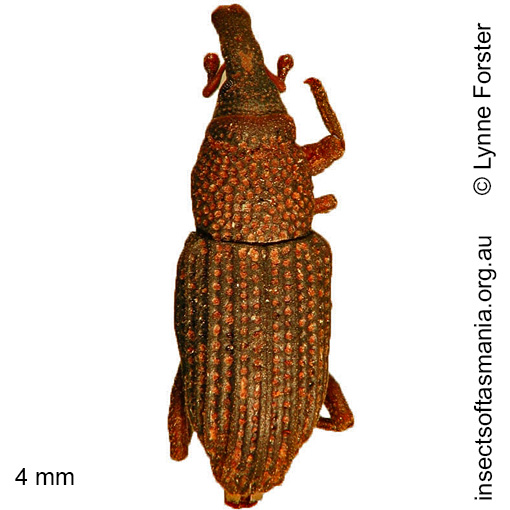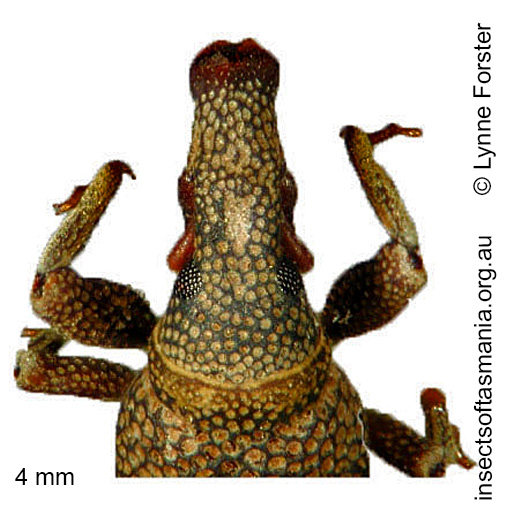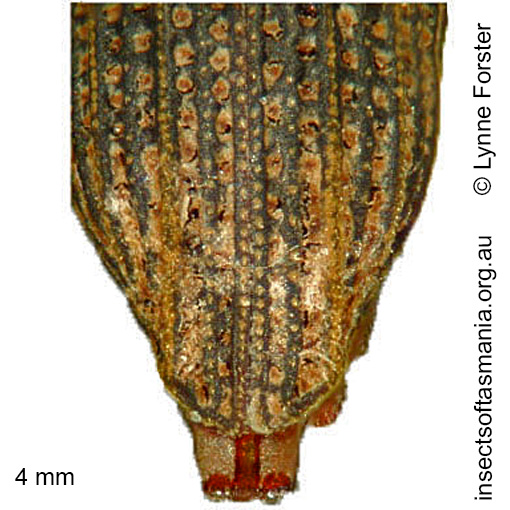
Dryophthorus ECZ sp 02 (a species of weevil)
Basis for Tasmanian occurrence
TMAG collections
Classification
Order: Coleoptera
Suborder: Polyphaga
Superfamily: Curculionoidea
Family: Curculionidae
Subfamily: Dryophthorinae
Tribe: Dryophthorini
Morphology
Typical length (mm): 4
Flightedness: winged and assumed capable of flight
Morphology (characterised by L. Forster): — Elytra with ridges which are slightly elevated between every second row of punctures; ridges 1 & 2 abruptly extended apically (when viewed dorsally) — Rostrum with a mid-longitudinal depression anteriorally — Wings present.
Source literature on morphology and taxonomy (*primary taxonomic source, where identified):
Zimmerman, E.C. (1994b). Australian Weevils, Vol. 3. East Melbourne: CSIRO.
Ecology
Assumed larval feeding: wood-feeder
Association with dead wood or old trees: obligately saproxylic
Ecological attributes: — Associated with mudguts (Harrison, 2007) — Associated with wet brown cubic rot (Harrison, 2007) — Found under large logs (Grove et al., 2006).
Collection method(s) for TFIC material: — Emergence trapping from log of Eucalyptus obliqua — Hand collection (substrate not specified) — Hand collection from under log of Eucalyptus sp. — Pitfall trapping — Trunk window trapping (Harrison, 2007).
Source ecological literature:
Grove, S.J. et al. (2006). What lives under large logs in Tasmanian eucalypt forest? Tas. Nat. 128: 86-93.
Harrison, K.S. (2007). Saproxylic beetles associated with habitat features in Eucalyptus obliqua trees in the southern forests of Tasmania. PhD thesis, Dept. of Zoology, Univ. of Tasmania, Hobart.
Yee, M. (2005). The ecology and habitat requirements of saproxylic beetles native to Tasmanian wet eucalypt forests: potential impacts of commercial forestry practices. PhD thesis, Univ. of Tasmania, Hobart.
Yee, M. et al. (2006). Brown rot in inner heartwood: why large logs support characteristic … beetle assemblages … In Grove, S.J. & Hanula, J.L. (eds.) Insect biodiv. and dead wood, pages 42-56. USDA For. Serv., SRS.



